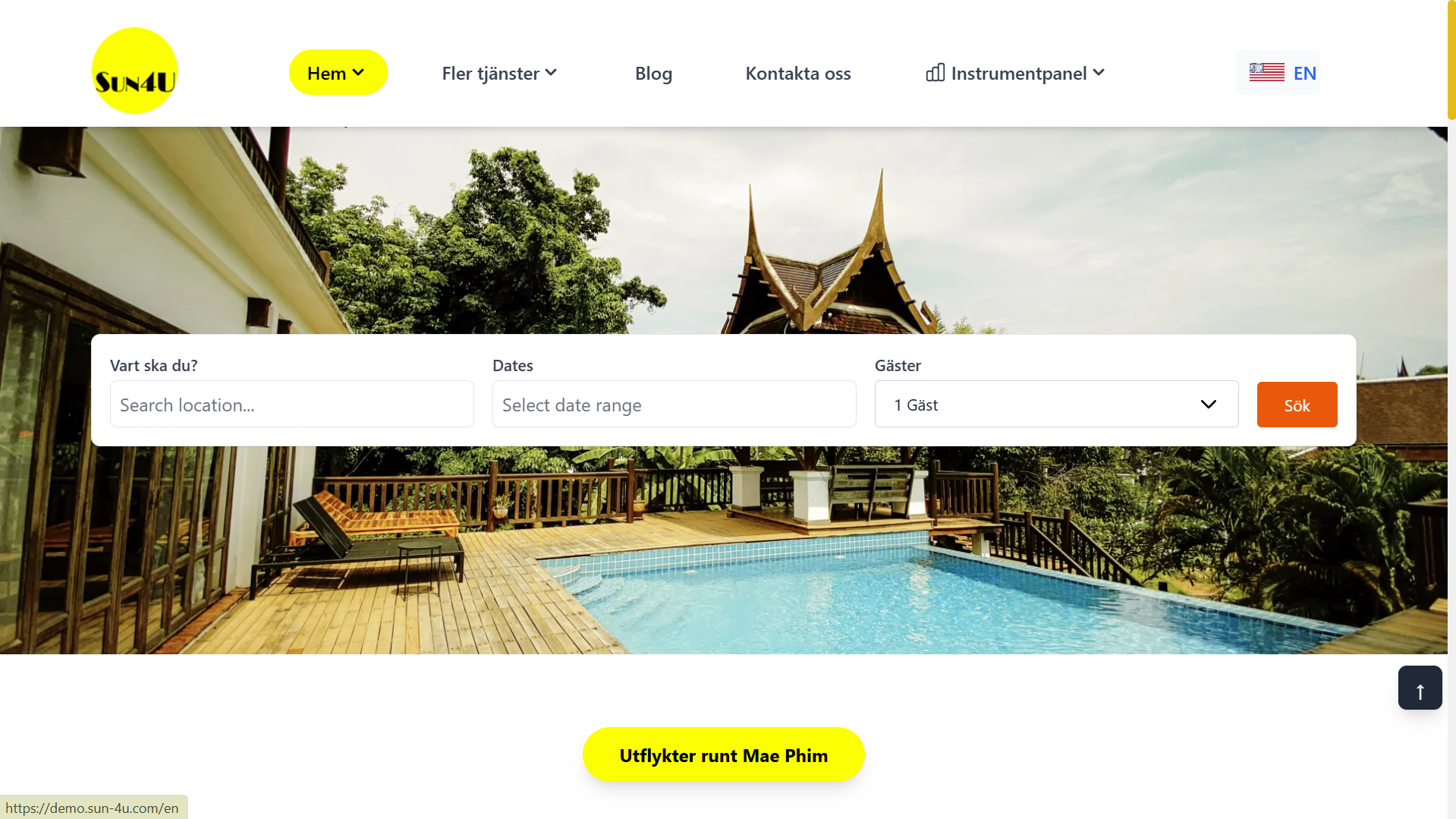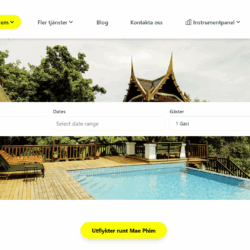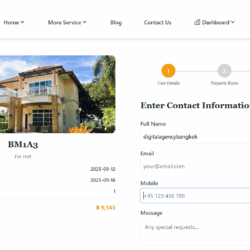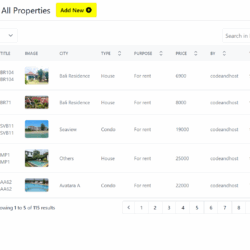How Web Apps Make Hotel and Accommodation Management Easier

Managing a hotel website or accommodation business today requires handling room bookings, customer data, coordinating services, and tracking room availability and reservations in real-time. Doing all of this manually or with outdated systems can be complex, prone to errors, and time-consuming due to repetitive tasks.
This article explains why a web application or backend booking system is a crucial tool for simplifying hotel and accommodation management. It also includes real-life examples from businesses using web apps to improve efficiency and convenience for both owners and guests, demonstrated by a leading website development company.
The Importance of Web Applications for Hotels and Accommodations
Managing a hotel or accommodation business involves juggling multiple tasks at the same time, including room bookings, tracking room status, providing customer service, and managing customer information. Manual processes or outdated systems often create complexity, waste time, and increase the risk of errors, such as double bookings, incorrect pricing, or delayed services.
Web applications solve these problems by consolidating all systems into a single platform. Business owners can easily monitor room availability, manage bookings, and track customer information in real-time. This not only reduces mistakes and boosts team efficiency but also enhances the guest experience, making the web application an essential tool for hotels and accommodations aiming to grow steadily in the digital era.
Why Hotels Should Use Web Applications
- Real-Time Booking Management
Web apps allow hotel owners to monitor bookings immediately, whether from the hotel website or external platforms. Real-time updates reduce the risk of double bookings or overlooked availability, enabling faster responses to customers and increasing guest satisfaction and confidence.
- Instant Room and Service Monitoring
With a web app, all information about rooms availability, type, price, and amenities can be viewed on a single screen. Additional services such as housekeeping, meal preparation, or in-hotel activities can also be tracked, allowing teams to manage operations efficiently and reduce confusion between departments.
- Minimize Errors from Multiple Records
Managing data manually or across multiple tools often causes errors, such as incorrect customer information, mismatched pricing, or duplicate bookings. A web app stores all data in one system, ensuring accuracy, reducing repetitive work, and saving team members’ time.
- Improve Team Efficiency
Web apps provide immediate access to necessary information, such as booking lists, guest history, and room status, helping staff work faster and make better decisions. Access permissions can be set according to roles, ensuring secure and effective management.
- Enhance Guest Experience
Guests enjoy a seamless and fast experience when searching for rooms, comparing prices, or booking online. Clear, comprehensive information helps customers understand the process and book with confidence. Business owners can also send promotions or updates directly to guests, increasing satisfaction and loyalty.
Real-Life Example
Many hotels and accommodations are now using web apps to streamline operations. For instance, Sun4U, a vacation rental and villa provider in Mae Phim, Rayong, uses a web app to manage property listings, search by type, price, and location, and provide instant online booking confirmation. Staff can access booking details and room status in real-time, making management faster, reducing errors, and providing greater convenience for guests.
This example demonstrates that Sun4U web apps not only simplify business operations but also deliver a convenient and reliable experience for customers, increasing satisfaction and loyalty.
Business Advantages of Web Applications
- Faster Decision-Making with Real-Time Data
Web apps give owners and staff immediate access to booking information, room status, and occupancy rates, enabling quick planning and decisions without waiting to gather data from multiple sources.
- Reduce Repetitive Work
Manual processes often require entering data multiple times. Web apps consolidate all steps in one system, reducing repetitive tasks and allowing teams to focus on core business operations, such as customer service and growth initiatives.
- Boost Guest Satisfaction and Confidence
Guests can easily search for rooms, check prices, and complete bookings online. Clear and comprehensive information helps them feel confident in their reservations, creating a positive experience from the start.
- Improve Team and Resource Efficiency
Web apps allow role-based access to information, ensuring staff members can access only the data relevant to their role. This reduces mistakes and enhances coordination between team members.
- Support Future Business Growth
Web applications can be expanded with new features, such as integration with OTA platforms, promotions, or occupancy reporting. This flexibility allows businesses to grow and adapt without relying on outdated systems.
Conclusion
Web applications simplify hotel and accommodation management by enabling real-time room monitoring, efficient booking management, customer data tracking, and improved guest experiences. They not only enhance team efficiency, reduce errors, and save time but also build trust and satisfaction among guests.
For hotel and accommodation owners, having a web app or backend booking system is a key step to elevate operations, improve efficiency, and deliver a better experience for guests. If you are looking to develop a digital system for your business, start today with Digital Agency Bangkok to create a system that meets the needs of both owners and customers.
Phone: 098-7655-243 or 098-7655-701
Email: [email protected]
Frequently Asked Questions About Web Applications for Hotels
Q1: What is a web application for hotels
A1: A web application is an online system that allows hotel owners and staff to manage bookings, rooms, customer information, and services through a web browser without installing additional software.
Q2: How does a web app help hotel owners?
A2: It provides real-time booking management, room monitoring, reduces errors from multiple records, improves team efficiency, and enhances the guest experience.
Q3: Is installing a web app difficult?
A3: Installation depends on the system, but most web apps can be accessed via a web browser immediately. Providers also assist with setup and training to ensure staff can start using it quickly.
Q4: Can web apps integrate with other online booking platforms (OTAs)?
A4: Yes, many web apps can connect with OTA platforms like Booking.com or Agoda, enabling real-time updates and reducing duplicate bookings.
Q5: What does the backend system do?
A5: The backend allows staff to manage property listings, bookings, payments, customer communications, and business reports all in one place, making management simple and secure.
Q6: Can web apps really increase bookings?
A6: Yes, by improving the guest experience with convenience and speed, web apps increase repeat bookings and customer satisfaction, helping businesses retain existing customers and attract new ones.
Q7: Are web apps suitable for all hotel sizes?
A7: Yes, they are suitable for small hotels, boutique hotels, and villas. Systems can be scaled and customized to fit the number of rooms and specific business needs.







